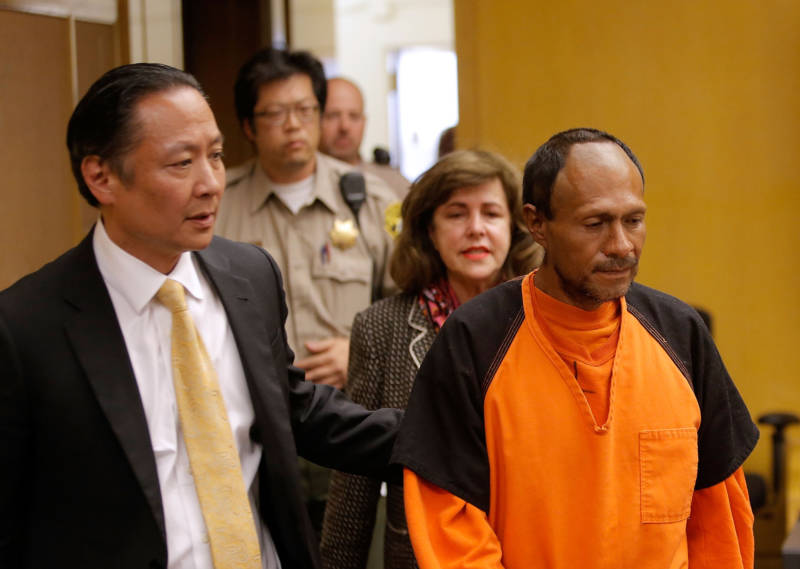“That must have been hell,” Chhabria said.
The shooting shocked a country already divided over immigration and fueled Donald Trump’s successful campaign for president. Trump called for a crackdown on unlawful immigration and the sanctuary cities and states — including San Francisco and California — that limit their cooperation with certain federal immigration enforcement actions.
García Zárate admitted firing the gun on July 4, 2015, but said he found it under a bench and didn’t know what it was when he picked it up because it was wrapped in a T-shirt. The gun fired accidentally after he picked it up, he said. Officials said the bullet ricocheted off the ground and hit Steinle.
The handgun belonged to a U.S. Bureau of Land Management ranger who reported it stolen from his parked car a week before Steinle was killed.
He was acquitted of homicide charges by a San Francisco jury in 2017, but faced firearms charges in federal court. In March, he pleaded guilty to being a felon in possession of a firearm and a person illegally in the country in possession of a firearm.
García Zárate will be sent to Texas, where he faces a federal judge for failing to report his location when he was released from a San Francisco jail shortly before the shooting. He had already been deported five times and was on track to be removed from the U.S. again when he shot Steinle.
The maximum sentence on the firearms charges was 10 years. Prosecutors agreed to the sentence of time served, plus three years of probation. García Zárate’s lawyers wanted a shorter sentence so he could apply any time left over in case the judge in Texas imposes additional prison time.
Before the killing, García Zárate had recently completed a prison sentence for illegal reentry to the U.S., and was then transferred to San Francisco to face a 20-year-old marijuana charge.
Prosecutors declined the case, and the San Francisco sheriff released him from jail despite a federal immigration request to detain him for at least two more days to face deportation proceedings.
García Zárate “feels horrible about what happened, and that he’s very sorry and apologizes,” his lawyer, Mike Hinckley, said in court Monday.
Chhabria said he does not believe that prosecutors proved that García Zárate had acted with criminal recklessness in the shooting, and that because of his mental health illness, he likely did not understand what was happening that day.
But the judge also said that consequences matter, and that García Zárate admitted being a felon in possession of a firearm.
Steinle’s relatives were not present in court for the sentencing, and prosecutors said her family did not want to participate in the proceedings.

